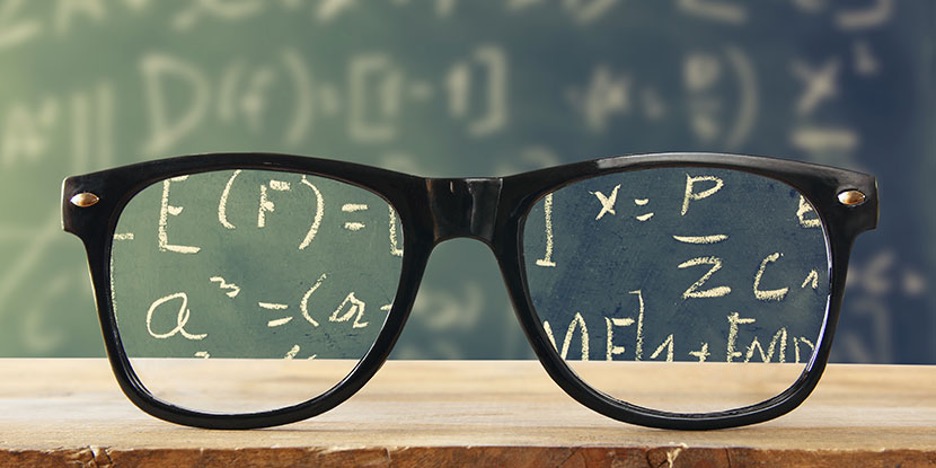What does being myopic mean?
Myopia, or more commonly known as nearsightedness, is a word that might be familiar to many, you may have seen it around the Internet or heard it on the news. How much do you really know about myopia? More importantly, what does this word have to do with your child’s eye health? To understand this better let us first dive deep into what does being myopic mean for your children?

What is the meaning of being myopic?
Myopia, also known as short-sightedness or near-sightedness, is a refractive error in the eye that affects a person’s ability to focus on distant objects [1]. Myopia can start to develop among children as young as 7 years old [2]. Research has shown that myopia becomes more common as children grow older [3].
At this point, you may wonder what could cause your child to develop myopia in the future. Let’s take a look at some common causes of myopia.
What causes myopia?
Myopia can be caused by a number of different factors. Broadly speaking, these include genetic, and environmental factors.
1. Genetic factors

Studies have shown that genetic factors play a significant role in whether your child will develop myopia [4]. When both parents are myopic, there is a higher chance that their children will develop myopia, suggesting that nearsightedness is hereditary [5].
2. Environmental factors

Aside from genetics, lifestyle choices can contribute to the development of myopia in your child.
Extensive time spent on near work activities such as reading, studying, watching TV, or playing video games on a mobile device is found to cause myopia among children [7]. The short working distance will cause your child’s eyes to accommodate, triggering the eye to grow longer or elongate, also referred to as axial elongation, resulting in the onset or progression of myopia.
It may seem like it is the end of the road when your child is diagnosed with myopia, but trust us, it is not. There are still ways to prevent myopia from worsening and to help your child have good eye care habits.
For parents, the next step is to understand how to reduce the odds of developing myopia or what to do if your child has myopia.
Can myopia be prevented?
As the adage goes, prevention is better than cure. Getting your child’s eyes checked regularly is one way to make sure that their eyes are healthy. Need help to book an eye check? Check out your nearest optometrist at planoeyecheck.com. It only takes one minute to book an eye appointment!
How is myopia managed?
If your child has myopia, it is essential that your child goes for their annual eye checkups. While myopia is irreversible, monitoring the health of the eye is important in ensuring that their condition does not progress to more serious conditions that could lead to blindness.
Keeping your child from engaging near work activities for long hours can help to manage their condition. Having sufficient eye breaks and outdoor time can allow your child’s eyes to rest. Ensuring that your child does not have too much screen time on their mobile devices can help to manage myopia.
The world’s first science-based parental control app is here to save the day! Keep your child safe online and their eyes healthy with the planoApp. Set reminders and controls for your child while on their mobile device.
Let us do our part as parents to protect the health of our children’s eyes allowing them to see the bright future that is ahead of them.
References:
[1] D. R. Fredrick., “Myopia” Bmj, vol. 324, no. 7347, pp. 1195-9, 2002.
[2] B. Seet et al., “Myopia in Singapore: taking a public health approach,” British Journal of Ophthalmology, vol. 85, no. 5, pp. 521-6, 2001.
[3] C. Theophanous et al., “Myopia prevalence and risk factors in children,” Clinical ophthalmology (Auckland, N.Z.), vol. 12, pp. 1581–7, 2018.
[4] L. Spillmann, “Stopping the rise of myopia in Asia,” Graefe’s Archive for Clinical and Experimental Ophthalmology, vol. 258, no. 5, pp. 943-59, 2020.
[5] J. Cooper and A. V. Tkatchenko, “A Review of Current Concepts of the Etiology and Treatment of Myopia,” Eye & contact lens, vol. 44, no. 4, pp. 231-47, 2018.
[6] M. Yap et al., “Role of heredity in the genesis of myopia,” Ophthalmic and Physiological Optics, vol. 13, no. 3, 316-9, 1993.
[7] L. Wu et al., “Prevalence and associated factors of myopia in high-school students in Beijing,” PLoS One, vol. 10, no. 3, 2015.
Tools Designed for Healthier Eyes
Explore our specifically designed products and services backed by eye health professionals to help keep your children safe online and their eyes healthy.
